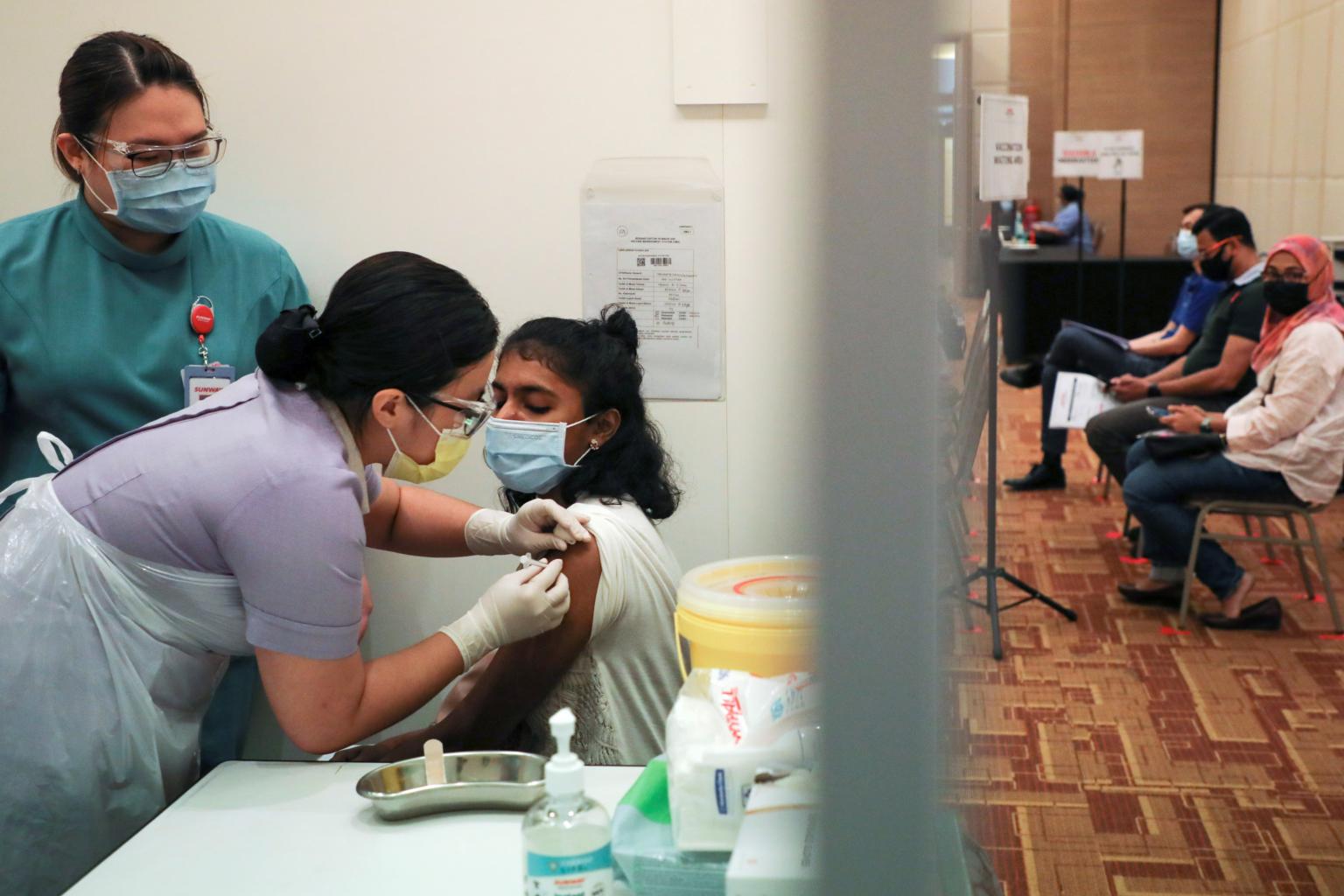Malaysia brings forward Covid-19 vaccine roll-out schedule due to low registration
Sign up now: Get insights on the biggest stories in Malaysia

Malaysia aims to achieve herd immunity by the end of the year at the earliest by inoculating 80 per cent of its population.
PHOTO: REUTERS
KUALA LUMPUR - Just over a month into Malaysia's national vaccination drive against Covid-19, the government is changing its roll-out timetable due to low registration numbers.
The country will bring forward the implementation of the third phase of vaccination - meant for the public - to the end of April, and will consider a policy change if the sign-up rate does not improve in the next two months.
The acceleration comes after only one-third of Malaysia's senior citizens - designated as a high-risk group - have signed up for the jab under the second phase starting in the middle of the month.
General sign-ups remained low as of Sunday (April 4), with less than a quarter of Malaysia's 33 million people having signed up for vaccination, and with most states - the exception being administrative capital Putrajaya - seeing a sign-up rate of below 50 per cent.
Malaysia's coordinating minister for immunisation Khairy Jamaluddin said on Monday that the government might need to relook its vaccination policy should the situation remain the same in July.
Malaysia is scheduled to receive the bulk of its vaccine supply that month.
"For now, demand is still higher than supply. The level of registration needs to be reassessed around July. If we see that the level of supply overtakes demand, we will have to consider some further options," Mr Khairy told a press briefing on Monday.
The government currently encourages voluntary registration for the vaccine shots, but Prime Minister Muhyiddin Yassin has acknowledged that sign-up rates are currently "small".
Malaysia aims to achieve herd immunity by the end of the year at the earliest by inoculating 80 per cent of its population, or 26.7 million people.
Tan Sri Muhyiddin last week mooted allowing fully vaccinated individuals to cross state lines in Malaysia, and also be allowed to travel abroad, to incentivise people to get vaccinated. Malaysia's interstate travel ban has been in place since January, and its international borders have remain closed since March last year.
Health Minister Adham Baba said on Monday that Mr Muhyiddin's suggestion is still being studied by the health authorities.
Mr Khairy has also said that the government will consider announcing certain incentives for fully vaccinated individuals to spur the vaccination drive.
The authorities last week also announced tie-ups with several private firms to increase vaccine awareness and outreach in Malaysia and drive up registration.
Malaysia's state-linked postal service, Pos Malaysia, will start door-to-door delivery of fliers on the vaccination, especially in areas and states that have extremely low registration rates. Sabah - Malaysia's poorest state - reported only a 12 per cent sign-up rate, while several east coast states such as Kelantan and Terengganu also reported sign-ups of just above 20 per cent.
E-hailing giant Grab has said it will include vaccine information on its apps and that it will map out vaccination centres for the ease of its users. Several other private firms, including department store chain Parkson, said that they will have vaccine registration counters on their premises.
Malaysia launched its Covid-19 immunisation plan on Feb 24, with Mr Muhyiddin being the first person to be inoculated. The government is currently finishing the first phase of the inoculation that is targeted at front-liners. Around 850,000 people have received at least one dose of the vaccine.
It will kick-start the second phase on April 19, targeting 2.3 million senior citizens and high-risk individuals with comorbidities who have registered so far. After the second phase inoculations, the country will start vaccinating the general population, including undocumented migrants, in its bid to achieve herd immunity.
It was initially targeting the bulk of the 9.4 million senior citizen population for second phase inoculations - originally scheduled from April to August - before third phase inoculations were to kick off from May onwards.
Mr Khairy said the government will move ahead and vaccinate those who have registered while conducting outreach and engagement programmes to get more people to sign up. High-risk individuals will automatically be designated as priority recipients even if they register later on.
To speed up the immunisation plan, the government also lifted its initial policy of reserving the second dose for every individual who receives a first dose of the vaccine.
Malaysia has secured enough vaccines to cover its entire population. Around half of the population will receive the Pfizer-BioNTech vaccine, which has started arriving in batches. The country is already using China's Sinovac vaccine.
It has also inked deals to procure Oxford University's Astrazeneca vaccine, and the single-dose CanSino vaccine, which it aims to use on vulnerable groups.


